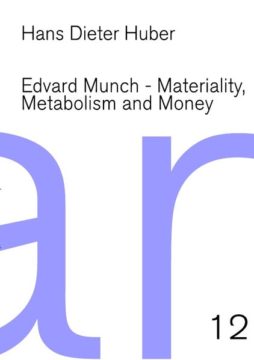These lectures emerged in the larger context of the book Edvard Munch. Dance of Life. A Biography. They were held in 2012 and 2013 as public lectures in Norway. These lectures offer additional information regarding some questions and topics, which weren’t discussed in detail in the biography.
The first lecture, which was held in September 2012 at the University of Bergen, following an invitation of Professor Dr. Sissel Lagreid, was concerned with reconstructing the ambivalence of this artist. He appears both as a person searching for an authentic construction of emotionality and on the other side acts economically and strategically as an media conscious person. The paper attempts to shed light into a slightly less illuminated side of the artist, mainly the question of the construction of emotion, immediacy and autobiography. On the other side it is trying to work out the forms of “exhibition management” in more detail; how he approaches gallerists, how he works out sales and entrance fees, the way he transports his works and produces its reproductions.
The second presentation was held on 6 June 2013 at the 7th Philosophy Festival in Kragerø På Kanten, which was specially dedicated to the painter Edvard Munch. In this paper I have tried to figure out the roots and inspirations that could have guided Munch‘s idea of an eternal cycle in nature, in which new life is born from dead matter. Above all, Nietzsche, Haeckel and Strindberg are the key sources of his inspiration.
The third lecture was held in December 2012, as part of the research project „Munch and Modernity“ at the Conference „New Visions. Edvard Munch and Modern Media Culture“ at the University of Oslo. This lecture is trying to take a completely new perspective with reference to the creative processes of Edvard Munch. Using the theme of the kiss as an example, an attempt is being made to explain that it is exactly the media difference which leads to a temporary identity of the representation. As a result of this Munch is probably one of the first artists, who disregards or at least questions the idea of a finished, completed work, and at the same time critizises the notion of the author as someone who tries to find definitive formulations and solutions. Munch temporalized the complexity of artistic identity by dissolving it over and again into new different formulations.
- Veröffentlicht am Dienstag 25. März 2014 von epubli
- ISBN: 9783844290141
- 60 Seiten
- Genre: Kunst, Literatur, Sachbücher
